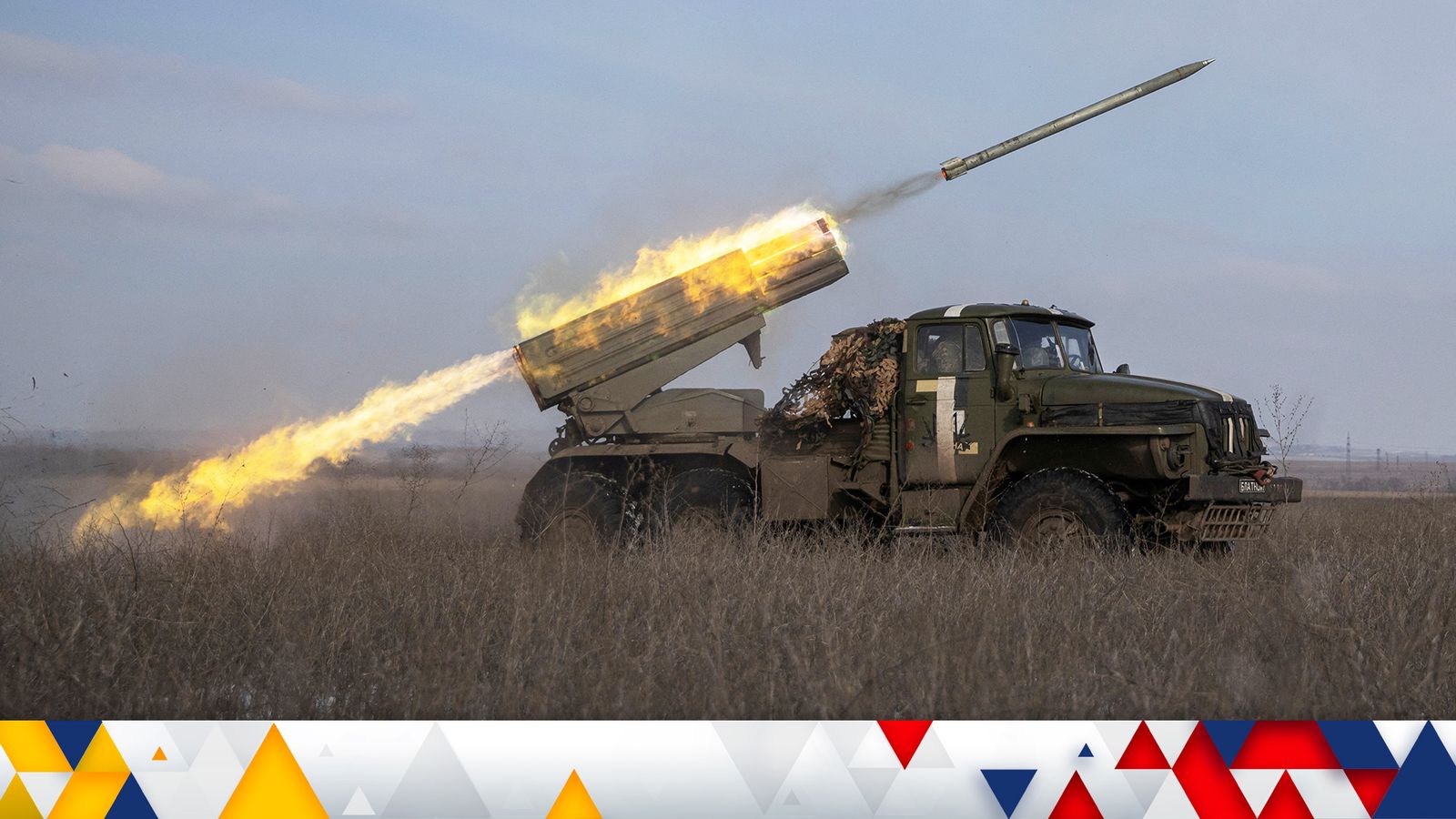Russia will not run out of weapons or troops for its war “any time soon” and Vladimir Putin thinks he can “bomb” Ukraine to the negotiating table, a European spy agency has warned.
The Estonian Foreign Intelligence Service (EFIS) – the Estonian equivalent of the UK’s MI6 – also said that a Russian victory in Ukraine would increase the probability of an armed conflict between Moscow and the NATO alliance. Ukraine is not a member of NATO.
Kaupo Rosin, the agency’s new director general, said in a foreword to an annual report on international security published on Wednesday that the Russian president’s goal in Ukraine has not changed despite setbacks over the past 12 months, which thwarted his plan for a quick coup.
Two regions identified where Russia could launch offensive – Ukraine war latest updates
“For now, there is still enough fuel to keep the war machine going,” he wrote. “Russia will not run out of cannon fodder, Soviet-era armaments or propaganda-induced imperialism any time soon.”
The comments contrasted with remarks made last October by Sir Jeremy Fleming, the head of the UK spy agency GCHQ, who said that Russian “supplies and munitions are running out”.
There is a discrepancy between how different nations assess the level of Russian stockpiles of weapons and ammunition, with the quantity calculated as far higher if outdated Soviet-era munitions – that are far less safe – are included.
Yet, the reality on the ground in eastern Ukraine has seen little let-up in Russian bombardments against Ukrainian positions throughout the winter months.
The Estonian spy chief played down any suggestion of an imminent breakthrough by Russia after so far failing to conquer its neighbour and paying a heavy price.
The United States has said that Russia has suffered some 188,000 casualties so far.
Please use Chrome browser for a more accessible video player
Putin ‘playing for time’
“A quality leap in Russia’s war-fighting capability is very unlikely,” Mr Rosin wrote, instead suggesting that whichever side can endure the longest will be key.
“Putin is playing for time, believing that Ukraine and the West will wear out before Russia. Putin thinks he can ‘bomb’ Ukraine to the negotiating table.”
The Estonian spy agency’s full report, entitled International Security and Estonia 2023, said that Moscow was ready to “continue raising the stakes” in Ukraine through further mobilisation of its population and more strikes against Ukrainian power infrastructure.
Mr Putin already ordered a partial mobilisation of more than 300,000 personnel last September. About half are thought to have been pushed quickly into the fight but the rest have been receiving training and are expected to form part of a new offensive by the spring, according to western officials.
Please use Chrome browser for a more accessible video player
Putin believes Ukraine’s resilience and western support will break before Russia
Ukrainian President Zelenskyy, who is visiting the UK on Wednesday, said last week that the Russian escalation has already started in the east, where the level of attacks has been increasing.
“Russia believes that time is on its side in the war in Ukraine,” the Estonian report warned.
“In our assessment, Putin believes that Ukraine’s resilience and western support will break before Russia will. Still, in Putin’s opinion, Ukraine has not yet currently suffered enough to reach breaking point.”
The spy agency said the challenge still posed by Russia underlined the need for western allies to continue their support to Ukraine – something that was not just in Ukraine’s interests but also in the interests of the wider western world.
“European security in the medium term directly depends on the Ukrainians’ will to determine their own future and western unity in supporting Ukraine with all necessary means,” the Estonian Foreign Intelligence Service report said.
It added: “The probability of a military conflict between NATO and Russia would increase if Russia were to achieve its strategic objectives in Ukraine. Therefore, Ukraine’s victory in the war against Russia would also improve regional security.”








